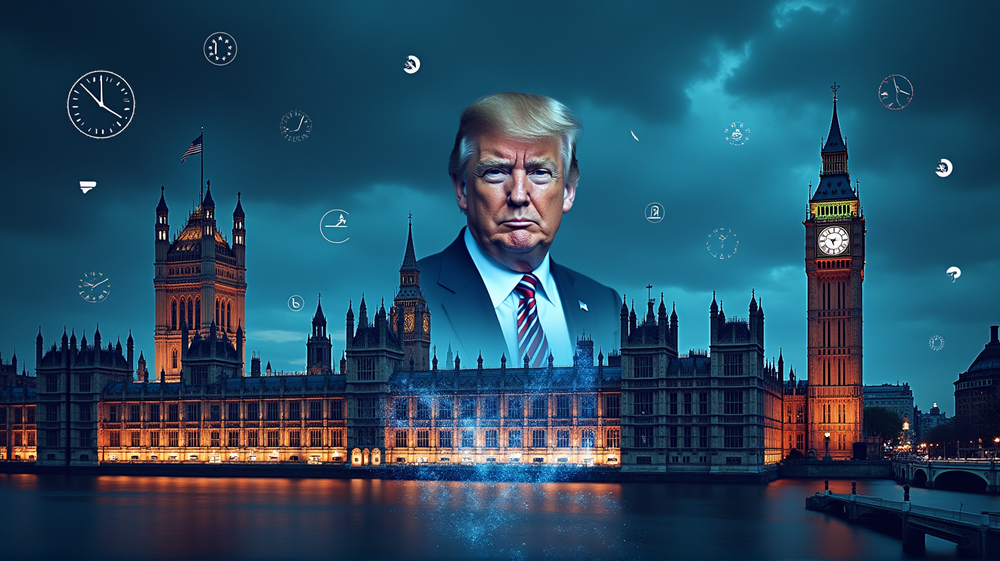In a series of heated exchanges, the United Kingdom and the European Union have found themselves in the crosshairs of former President Donald Trump. Accusations have flown across the Atlantic as Trump’s threats of tariffs target nations adopting stringent digital tax policies, with Britain and the EU standing firm on their regulatory rights.
UK’s Stance on Digital Taxation
The UK government staunchly defends its digital services tax, labeling it as fair and proportionate. Designed to ensure that digital businesses contribute their fair share, this tax currently funnels around £800 million annually into the government’s coffers. Britain remains steadfast in its commitment, stating the tax will be repealed only when a more comprehensive international solution is reached.
EU Asserts Sovereign Rights
Echoing its British neighbors, the EU has also stood firm, asserting its sovereign right to regulate tech giants like Meta and Apple within its borders. The European Commission, armed with its Digital Markets Act and Digital Services Act, aims to create a level playing field by addressing competition and content moderation issues.
Trump’s Tariff Threats
Amid ongoing transatlantic trade discussions, Trump has threatened tariffs on EU nations he perceives as unfairly targeting American technology. The US administration has consistently criticized the EU’s regulations, branding them as discriminatory. However, the EU dismisses such claims, urging patience and cooperation over confrontation.
Impacts and Implications
The tariffs threatened by Trump have sparked debate about the future of international trade relations. The UK and EU remain vigilant in shielding their economies and consumer rights from any potential fallout. Simultaneously, these developments underline the growing tension in the global landscape of digital taxation and tech regulation.
Looking Ahead
As the world watches, this clash over digital policies reflects a broader struggle for dominance in regulating the virtual realm. As stated in Space Daily, the stakes are high, and the implications for consumers, tech companies, and international relations could be significant.
The digital age presents both challenges and opportunities, and the need for balanced worldwide regulations has never been more crucial.













